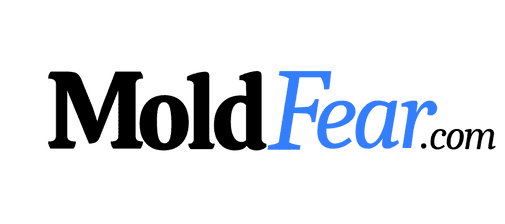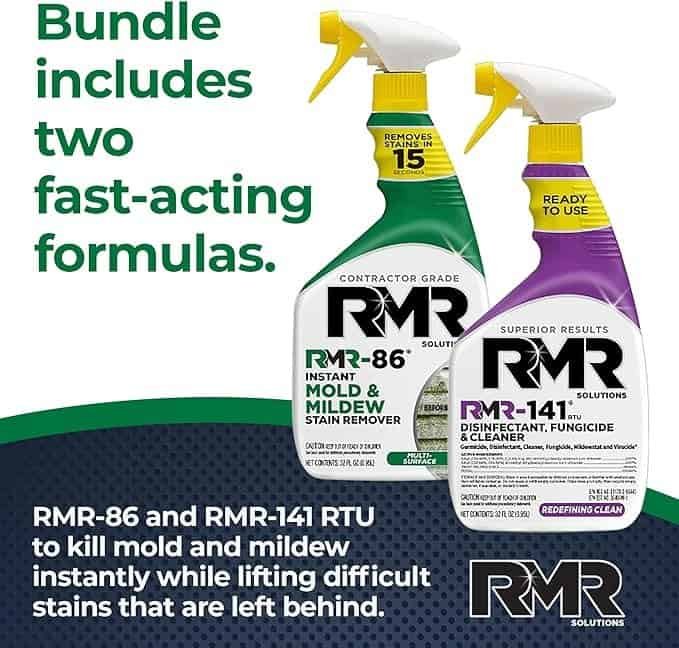Individuals exposed to mold may develop health complications often termed as mold illness. Managing these symptoms has increasingly become a focal point of concern for affected individuals, and dietary adjustments have been identified as a significant factor in the holistic management of mold-related illness. While contemporary medicine offers various treatments, the role of diet cannot be overlooked as it contributes to the body’s detoxification processes and supports overall well-being.

Addressing mold sickness requires more than just eliminating mold exposure from one’s environment; it involves nurturing the body with proper nutrition to combat the inflammations and toxic effects mold can induce. With targeted dietary strategies, individuals can enhance their body’s ability to detoxify from mold-related toxins, replenish deficient nutrients, and support the immune system. A mold recovery diet rich in certain nutrients and antioxidants can be pivotal in promoting healing, while certain foods should be marginalized or avoided to mitigate adverse health effects.
Key Takeaways
- Nutrition can play a crucial role in detoxifying the body from mold-related toxins.
- A balanced diet rich in antioxidants and specific nutrients supports mold illness recovery.
- Eliminating or reducing certain foods can help mitigate the negative health effects of mold exposure.
Understanding Mold and Its Health Effects

Mold, a ubiquitous component in the environment, can have significant health effects when individuals are exposed to excessive quantities indoors. Exposure to mold and its byproducts, including mold spores and mycotoxins, is linked to a range of health issues, particularly affecting the immune system and respiratory health.
Nature of Mold and Mold Spores
Mold is a type of fungus that plays a crucial role in nature by breaking down dead organic matter. It reproduces through tiny particles called spores, which are invisible to the naked eye and easily become airborne. These mold spores can enter indoor environments, where they thrive in moist conditions. Common indoor molds include Aspergillus, Cladosporium, and Stachybotrys chartarum, often referred to as black mold.
Types of Mold-Related Illnesses
Exposure to mold can lead to a variety of illnesses, each related to the type of mold and the duration of exposure. Mold allergy is quite common, where the immune system reacts to mold spores, leading to allergic symptoms. Mold toxicity, on the other hand, occurs when an individual is exposed to toxic substances known as mycotoxins, which certain mold species produce. Mycotoxins can cause serious health issues, including the potential for cancer and immune system problems.
Symptoms of Mold Exposure
Symptoms resulting from mold exposure can range from mild to severe and typically involve respiratory issues. They include coughing, wheezing, nasal congestion, throat irritation, and in more severe cases, could exacerbate asthma or cause allergic reactions. High-risk individuals, such as those with compromised immune systems or pre-existing respiratory conditions, may experience more serious health effects from mold exposure, such as invasive aspergillosis, a serious infection caused by the Aspergillus species.
The Science Behind Diet and Mold Detoxification

Diet plays a critical role in the detoxification process of mold-related illnesses, by supporting immune function, promoting the intake of detoxifying nutrients, and helping to mitigate oxidative stress through antioxidants.
Role of Diet in Immune Support
A well-rounded diet is essential for maintaining a strong immune response. Foods rich in vitamins and minerals can empower the body’s natural defenses against mold toxicity. For instance, a diet that supports the immune system is critical for those affected by mold exposures. This includes a focus on nutrient-dense vegetables and fruits as well as the inclusion of healthy fats and proteins to sustain overall well-being.
Detoxifying Foods and Nutrients
Certain foods and nutrients are particularly useful in the process of detoxification. These include compounds that support the liver’s ability to process and eliminate toxins. For example:
- Glutathione is a key antioxidant that aids in detoxification pathways within the liver.
- Foods that support the production of glutathione and other liver enzymes are beneficial. These can include cruciferous vegetables like broccoli and Brussels sprouts.
- Activated charcoal and bentonite clay are substances believed by some to aid in absorbing and removing toxins from the body, although their use should be approached with caution and only under professional guidance.
Antioxidants and Mold Recovery
Antioxidants are vital in neutralizing free radicals and reducing oxidative stress, which can be a consequence of mold toxicity. Antioxidants such as vitamins C and E can support this recovery process. Foods high in these antioxidants include berries, nuts, and leafy greens. The inclusion of these foods in a mold detox diet may assist in mitigating the detrimental effects of mycotoxins. In addition, supplements like glutathione may offer support, although they should be used under supervision from a healthcare professional.
Foods to Incorporate for Mold Recovery

Choosing the right foods is essential when recovering from mold illness. It’s about supporting the body’s detoxification processes and reducing inflammation through specific nutritional choices.
Anti-inflammatory Foods
Anti-inflammatory foods play a key role in calming the body’s response to mold exposure. Sufferers are advised to favor leafy greens like spinach and kale, which are known for their ability to reduce inflammation. These vegetables are not only nutrient-dense, promoting overall health, but they also help in soothing inflamed tissues within the body.
- Leafy Greens: Spinach, kale, Swiss chard
- Berries: Strawberries, blueberries, raspberries
Foods Rich in Antioxidants
Antioxidants combat oxidative stress, a condition that can be exacerbated by mold toxins. For individuals managing mold-related illness, foods high in antioxidants can support the body’s ability to neutralize harmful free radicals.
- Fruit: Apples, peaches, pears
- Vegetables: Broccoli, red bell peppers
Beneficial Fats and Proteins
Healthy fats and lean proteins are crucial for rebuilding cells and supporting brain health, which can be compromised in mold illness. Avocado is a source of monounsaturated fats, beneficial for cognitive functions. Additionally, walnuts and other nuts and seeds provide omega-3 fatty acids, which contribute to the structural integrity of the brain.
- Healthy Fats: Avocado, olive oil, coconut oil
- Lean Proteins: Chicken breast, turkey, fish
Foods and Substances to Avoid

In managing mold-related illness, it is crucial to understand that certain foods can exacerbate symptoms and encourage mold growth within the body. Paying close attention to diet is essential for reducing the inflammatory response and minimizing exposure to dietary molds and toxins.
Inflammatory and Mold-Enhancing Foods
Processed Foods: These often contain high levels of sugar and unhealthy fats that can trigger an inflammatory response in the body. They may also include other ingredients like corn syrup, which should be avoided due to their potential mold content and the inflammation they may cause.
- High-Sugar Foods: Sugar is a significant trigger for inflammation, providing an environment conducive to mold growth.
- Dairy Products: Some dairy can contain antibiotics or hormones, contributing to inflammation, and certain types, like soft cheeses, may be prone to mold.
- Grains: Grains, especially those containing gluten, can be inflammatory for certain individuals and have a higher risk of mold contamination.
List of Specific Inflammatory and Mold-Enhancing Foods:
- Processed snack foods (chips, cookies)
- Sweetened beverages
- Bread and pastries
Common Dietary Toxins and Molds
Peanuts, Corn, and Soy: These are often contaminated with mycotoxins due to the molds that grow on them while in storage. Limiting or avoiding these foods can reduce the risk of mold ingestion.
- Peanuts: Prone to the growth of aflatoxins, which are types of mycotoxins produced by Aspergillus molds.
- Corn: It can harbor various molds, especially when not properly dried or stored.
- Soy: Similar to corn and peanuts, soy is susceptible to mold contamination, potentially contributing to mold-related health issues.
Alcoholic Beverages: Alcohol, including beer and wine, can compromise the immune system and may contain mycotoxins, which impairs the body’s ability to heal from mold exposure.
List of Common Dietary Toxins and Molds:
- Nuts, especially peanuts
- Corn-based products
- Soy products
- Alcoholic beverages such as beer and wine
Lifestyle and Environmental Considerations

Managing mold-related illness involves not only medical treatment but also addressing the environmental factors that contribute to the condition. Lifestyle changes geared towards reducing mold exposure and bolstering the body’s ability to maintain balance or homeostasis are key strategies. Effective management often includes alterations to the living environment and dietary modifications to support the body’s detoxification process.
Reducing Environmental Mold Exposure
To reduce exposure to mold, identifying and eliminating sources of moisture is critical. The Environmental Protection Agency (EPA) provides guidelines on how to prevent mold growth in homes by controlling humidity levels and fixing water leaks promptly. Utilizing a dehumidifier to maintain indoor humidity below 50% can be beneficial, especially during humid weather. Regularly inspecting and maintaining HVAC systems and implementing a HEPA filter can also help mitigate mold spores in the air.
Water-damaged buildings are particularly prone to mold growth, making it essential to address any water intrusion quickly. Additionally, those with genetic susceptibility to mold-related illnesses, such as asthma, may need to take extra precautions like ensuring good ventilation and avoiding areas known to be mold-contaminated.
- Preventive Measures:
- Use a dehumidifier during humid seasons.
- Fix water leaks as soon as they are identified.
- Clean and maintain air conditioners and HVAC systems.
- Install HEPA filters to trap mold spores.
Integrative Approaches to Fighting Mold
An integrative approach to fighting mold-related illness looks at both environmental changes and personal lifestyle choices. Nutrition plays a role in supporting the detoxification process. Certain nutritional strategies, such as avoiding foods with high mold content like certain nuts and grains, can be beneficial. Instead, focusing on a diet rich in antioxidants and nutrients may aid the body in balancing homeostasis and managing symptoms like fatigue, wheezing, and coughing.
Maintaining overall health through regular exercise and adequate sleep also supports the body’s ability to fight mold-related health effects. These integrative strategies aim to enhance the body’s natural resilience against allergens and toxins.
- Lifestyle Adjustments:
- Incorporate antioxidant-rich foods to support detoxification.
- Avoid foods known to be high in mold or mycotoxins.
- Engage in regular physical activity.
- Ensure adequate sleep to aid in the repair and recovery processes.
Holistic and Medical Interventions

When managing mold-related illnesses such as Chronic Inflammatory Response Syndrome (CIRS), integrating both holistic and medical interventions can be beneficial. The strategic use of supportive therapies and consultations with healthcare professionals can aid in recovery and improve overall well-being.
Supportive Therapies and Practices
Engagement in supportive practices like meditation and yoga can serve as complementary interventions in the management of mold-related illnesses. These practices often aim to reduce stress, which can potentially lower inflammation and support the immune system’s proper functioning. For instance, daily sessions of guided meditation have been recognized for their role in maintaining a balanced physiological state. Similarly, yoga, with its focus on physical postures and breathing techniques, may improve the body’s resilience to the stressors associated with toxin exposure.
Professional Healthcare and Treatments
Consulting with a healthcare professional experienced in environmental illnesses is critical for receiving accurate diagnosis and medical treatment. They may prescribe medication to address specific symptoms or complications arising from mold exposure. The Centers for Disease Control and Prevention (CDC) provides guidelines on the recognition and handling of illnesses caused by mold. Pioneers in the field, like Dr. Rick Sponaugle, have developed protocols that offer structured approaches to treatment. Such medical interventions, based on rigorous scientific understanding, can make a significant difference in the recovery trajectory of an individual suffering from mold-related health issues.
Formulating a Personalized Mold Recovery Plan

Creating a personalized mold recovery plan is essential for addressing the unique health issues that arise from mold exposure. It involves understanding individual health needs and customizing a dietary and supplemental regimen that enhances the immune system, supports gut health, and facilitates the body’s natural detoxification processes.
Assessing Individual Needs
Each person’s body reacts to mold exposure differently, affecting various systems, organs, and tissues. To begin formulating a recovery plan, one must assess their specific symptoms and health complications. This process should consider existing conditions such as respiratory problems, allergies, and any immune system suppression caused by medications or infections. A comprehensive evaluation often requires the guidance of a healthcare provider with experience in mold-related illness to identify the extent of the impact and the appropriate interventions.
Nutritional Support and Supplementation
Nutrition plays a critical role in strengthening the immune response and supporting the body’s systems during recovery from mold illness. An effective dietary strategy includes:
- Antioxidant-rich foods: These help combat the oxidative stress caused by toxins. Foods such as berries, leafy greens, and nuts are high in antioxidants.
- Probiotic and prebiotic foods: To restore and maintain gut health, incorporating fermented foods like yogurt and sauerkraut is beneficial as they contain live bacteria that aid digestion and immunity.
Supplements can also serve as a key component of the recovery process. Products from a formula for health supplement store can be tailored to the individual’s needs, offering targeted nutritional support. Detoxing through methods like sweating is another aspect of holistic treatment; thus, supplements that enhance detoxification can be valuable. Always consult with a health professional before beginning any new supplementation to ensure its necessity and safety for your condition.
Frequently Asked Questions
Diet plays a crucial role in managing mold-related illnesses by helping to alleviate symptoms and detoxify the body. This section answers common queries on how to adjust your diet for this purpose.
What specific foods should I exclude from my diet to reduce mold exposure?
Individuals concerned about mold exposure should avoid foods known to be susceptible to mold growth or contamination, such as certain nuts, grains, and cheeses. It’s advisable to eliminate or reduce the intake of high-amylose foods, as they can exacerbate mold-related health issues.
Can you suggest some dietary strategies for detoxifying the body of mold?
To assist in detoxifying the body from mold, incorporating anti-inflammatory and antioxidant-rich foods can be beneficial. This includes leafy greens, berries, and foods high in vitamin C. Promoting bile flow through your diet is also a strategy used to support the elimination of mold toxins from the body.
What are the telltale symptoms that may indicate a food mold allergy?
Symptoms of a food mold allergy may include respiratory issues, skin irritations, or digestive problems shortly after consuming certain mold-prone foods. If one experiences these symptoms, they may be indicative of a possible mold allergy or sensitivity.
What dietary supplements are recommended to aid in the removal of mold from the body?
Certain supplements can support the body’s detoxification processes. These include those that enhance liver function and provide immune support, such as milk thistle and glutathione. Bile acid supplements can also be helpful for supporting bile flow and the gastrointestinal system.
Could you provide some recipes that support a mold detox diet?
Yes, recipes that are anti-inflammatory and supportive of detoxification can be useful. These might include smoothies with fresh fruits and greens or salads rich in vegetables and detoxifying herbs like cilantro. Foods rich in B vitamins are often included, such as leafy greens and poultry.
What are the best food choices to help combat mold within the body?
To help combat mold within the body, one should prioritize foods that support the immune system and reduce inflammation. This means choosing whole foods like fruits, vegetables, lean proteins, and healthy fats. Avoiding processed foods, sugars, and high-amylose carbohydrates is typically recommended.














